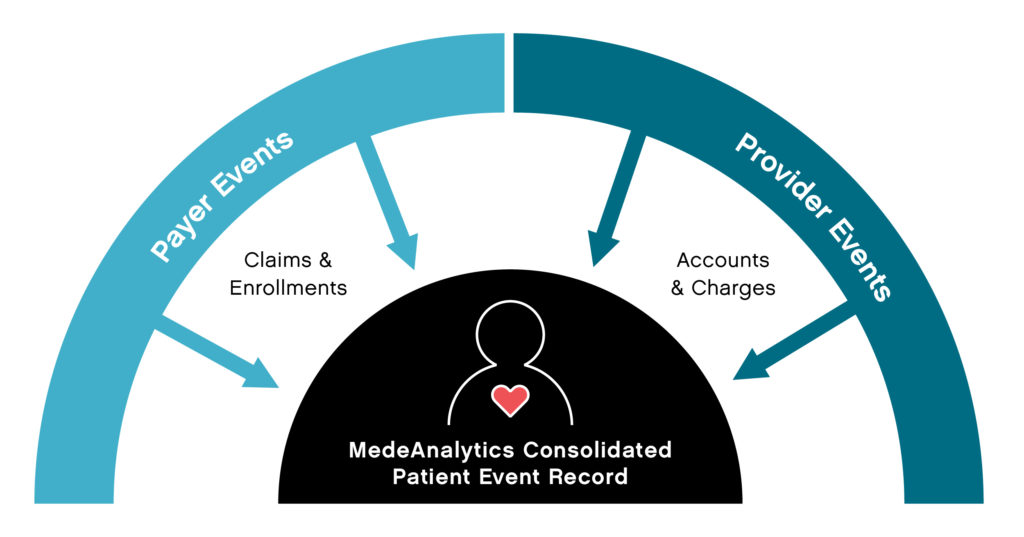
Did you know that a whopping 30% of the world’s data is healthcare related? 1
Every patient has a plethora of data associated with their health record, which can include decades of enrollments, claims, accounts and charges. Much of this data is not housed within the same institutional, facility or provider database and can be cumbersome and time-consuming to pull together, leaving room for reporting and processing errors. Finding ways to aggregate patient data and maintain it in one place is important because it creates the ability to have immediate, actionable insights, which allows payers and providers to make more informed decisions that save time and money and improve patient outcomes.
Yet, payers and providers traditionally maintain their own slices of patient data, which include enrollment and claims for payers and accounts and charges for providers. Some data elements are unique to payers and some to providers, but much of it overlaps, referencing the same patient events. By rolling up all pertinent claims for an event and connecting to the accounts and charges, payer and provider data can be linked to a single patient event record.

Linking data in this way allows for more collaboration and cohesive information sharing between payers and providers. Providers get access to data that extends beyond the walls of their organization. Payers get much more timely and complete information on their members, bypassing claim lag times. The new data relationship makes available a whole new set of patient-centric reports that were not possible before. Patient event reporting, for example, can provide true insights into mortality, readmissions, hospital-acquired conditions, which are especially critical to ACOs, IDNs and payvider (provider-owned health plans) organizations.
Succinct collection of data and timely dissemination of actionable insights is essential to enable efficient communications between doctors, hospitals, Accountable Care Organizations (ACOs) and health plans. When data is connected, you can accelerate universal speed to insights so that both payers and providers can make smarter decisions, reduce costs, increase organizational efficacy and improve patient outcomes. Learn more.
Get our take on industry trends
Where generative AI and healthcare intersect
Here at MedeAnalytics, we’re all a little nerdy. We get excited about what’s on the horizon for technology and spend…
Read on...Is what you’re asking for really what you need? Tips for getting to the root of the problem—and finding the right solution
As a lifelong data enthusiast and healthcare leader, one of my primary objectives is to help transform a reservoir of…
Read on...After the decision: How to effectively integrate new initiatives into current workflows
Choosing a new technology, solution or partner is often a long, intensive process. As important as the decision is, the…
Read on...7 proven strategies for engaging your staff in value-based care
Aligning staff and clinicians around shared, value-focused goals and objectives is essential for organizations to foster a culture of collaboration,…
Read on...



